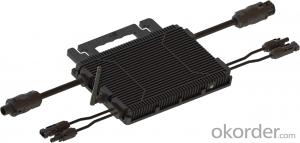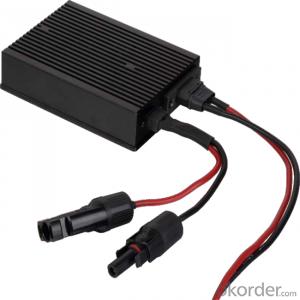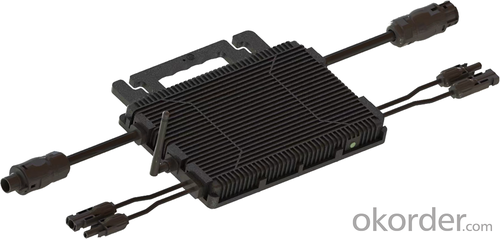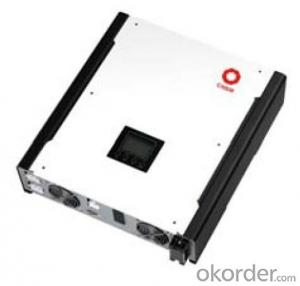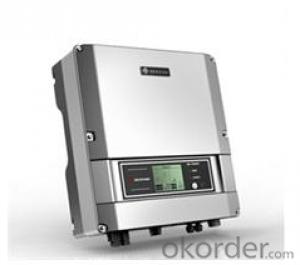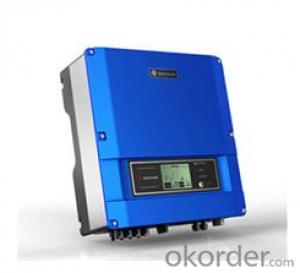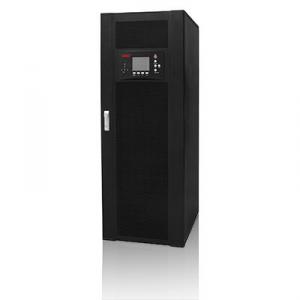Rooftop Solar Inverter - 2000W 10 Years Warranty Micro Inverters with CE Certificate for Home Balcony
- Loading Port:
- Stock in Panama
- Payment Terms:
- TT OR LC
- Min Order Qty:
- 10 pc
- Supply Capability:
- 500 pc/month
OKorder Service Pledge
OKorder Financial Service
You Might Also Like
Specification
Specification
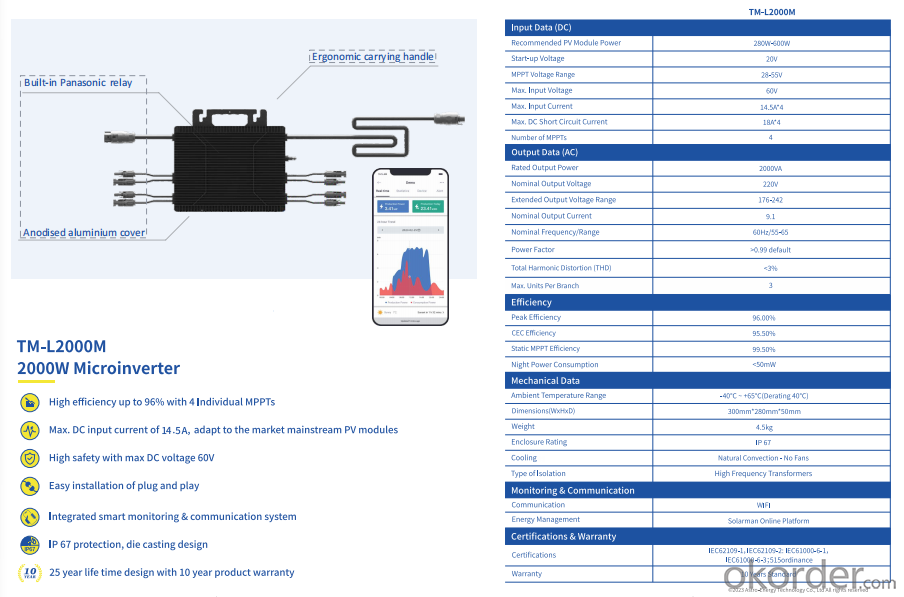
Company presentation
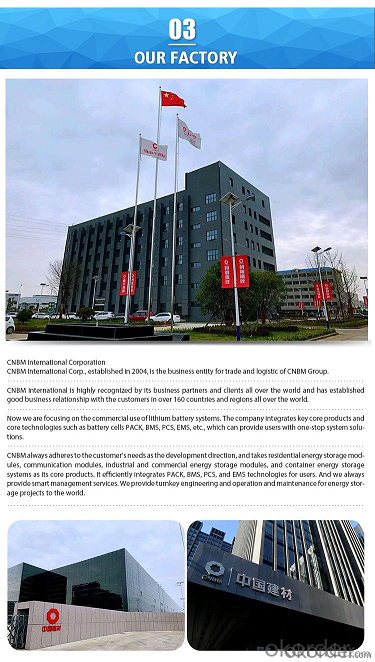
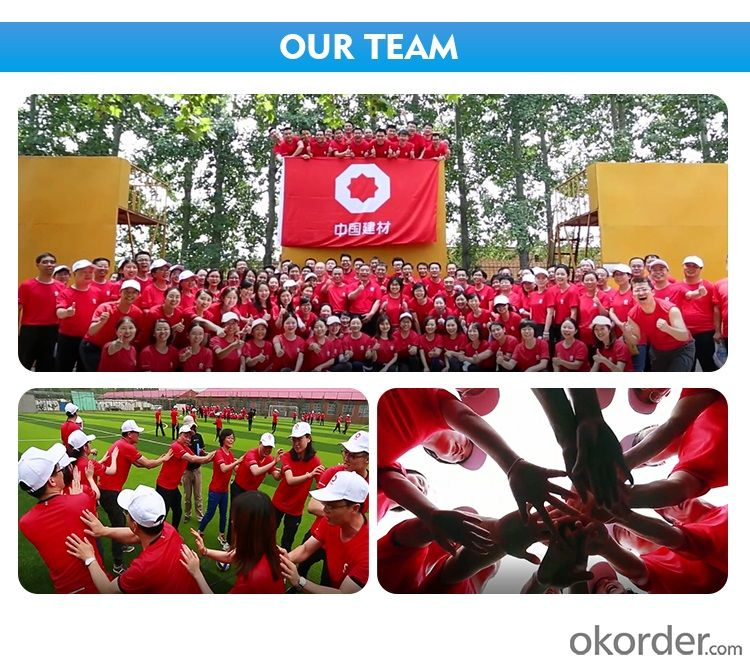
Company presentation
RFQ
Q: Do you have CE?A: Yes, our products are approved by CE.Q: Is OEM &ODM available in your factory ?A: Yes, you just offer us necessary documents and then we will produce the products as your requirements.Q: What is your Packing details?A: 1.Wooden case or carton package,standard export packages2.All of the productions are inspected carefully by QC before delivery.Q: What is your Delivery time?A: Usually, we make merchandise inventory. If we have the products in stock, the delivery time is 5-10 days after receiving the deposit; If we don’t have the products in stock, we will arrange the production right now. The delivery time will be 10-30 days. It depends on the quantity of order.Q:Why choose us?A: 1. Ready To Ship 2. Sample Available 3. One-Stop Service 4. Online customization5. Many years' experiences of manufacturing and service available in 24hours
- Q: What is the role of a maximum power control feature in a solar inverter?
- The role of a maximum power control feature in a solar inverter is to optimize the energy output of the solar panels by constantly tracking and adjusting the operating point to ensure that the system operates at its maximum power point (MPP). This feature helps to increase the overall efficiency of the solar system and maximize the amount of energy that can be harvested from the sun.
- Q: Can a solar inverter be used with different types of electrical appliances?
- Yes, a solar inverter can be used with different types of electrical appliances. The inverter converts the direct current (DC) produced by solar panels into alternating current (AC) that is compatible with various appliances. This allows for the use of solar energy to power a wide range of electrical devices and appliances in homes or businesses.
- Q: How does the weight of a solar inverter affect its installation process?
- The weight of a solar inverter can affect its installation process in a few ways. Firstly, a heavier inverter may require additional structural support or mounting equipment to ensure it is securely installed. This could involve reinforcing the mounting surface or using specialized brackets or racks. Secondly, the weight of the inverter may impact the ease of handling and maneuvering during installation, especially if it needs to be installed in elevated or hard-to-reach areas. Lastly, the weight can also impact the overall logistics of the installation, including transportation, lifting, and positioning of the inverter.
- Q: Can a solar inverter be used with different grid voltages or frequencies?
- No, a solar inverter cannot be used with different grid voltages or frequencies. Solar inverters are designed to convert the DC power generated by solar panels into AC power that matches the specific grid voltage and frequency of the electrical grid it is connected to. Using a solar inverter with different grid voltages or frequencies can cause damage to the inverter and may result in a loss of efficiency or functionality.
- Q: What is the role of a voltage regulator in a solar inverter?
- The role of a voltage regulator in a solar inverter is to maintain a consistent and stable output voltage despite fluctuations in the input voltage from the solar panels. It ensures that the electricity generated by the solar panels is converted and delivered to the connected devices or grid at the required voltage level, preventing any damage to the devices and optimizing the overall efficiency of the solar power system.
- Q: How does a solar inverter interact with a battery storage system?
- A solar inverter interacts with a battery storage system by converting the direct current (DC) generated by the solar panels into alternating current (AC) that can be used to power household appliances or be fed back into the grid. It also manages the charging and discharging of the battery, ensuring efficient energy storage and utilization.
- Q: How does MPPT improve the efficiency of a solar inverter?
- MPPT (Maximum Power Point Tracking) improves the efficiency of a solar inverter by continuously adjusting the operating point of the solar panels to ensure they are producing maximum power. This is achieved by maximizing the voltage and current output of the panels, which allows the inverter to convert more of the available solar energy into usable electricity. By constantly tracking the maximum power point, MPPT ensures that the solar inverter operates at its highest efficiency, resulting in increased overall system efficiency and improved energy generation.
- Q: How is a solar inverter different from a regular inverter?
- A solar inverter is specifically designed to convert the DC (direct current) electricity generated by solar panels into AC (alternating current) electricity suitable for use in homes and businesses. On the other hand, a regular inverter is mainly used to convert DC electricity from batteries or other sources into AC electricity. Therefore, while both inverters convert electricity from one form to another, a solar inverter is tailored for the unique requirements of solar power systems.
- Q: What is the lifespan of a solar inverter?
- The lifespan of a solar inverter typically ranges from 10 to 20 years, depending on various factors such as the quality of the inverter, usage patterns, maintenance, and environmental conditions.
- Q: What is the maximum DC input voltage for a solar inverter?
- The maximum DC input voltage for a solar inverter typically depends on the specific model and manufacturer. However, in general, the maximum DC input voltage for a solar inverter can range from around 500 volts to 1000 volts or more. It is important to consult the manufacturer's specifications for the specific solar inverter being used to determine the exact maximum DC input voltage.
Send your message to us
Rooftop Solar Inverter - 2000W 10 Years Warranty Micro Inverters with CE Certificate for Home Balcony
- Loading Port:
- Stock in Panama
- Payment Terms:
- TT OR LC
- Min Order Qty:
- 10 pc
- Supply Capability:
- 500 pc/month
OKorder Service Pledge
OKorder Financial Service
Similar products
Hot products
Hot Searches
Related keywords
